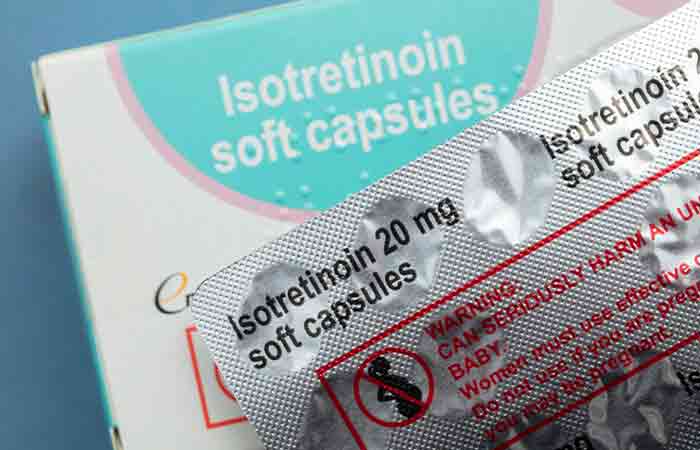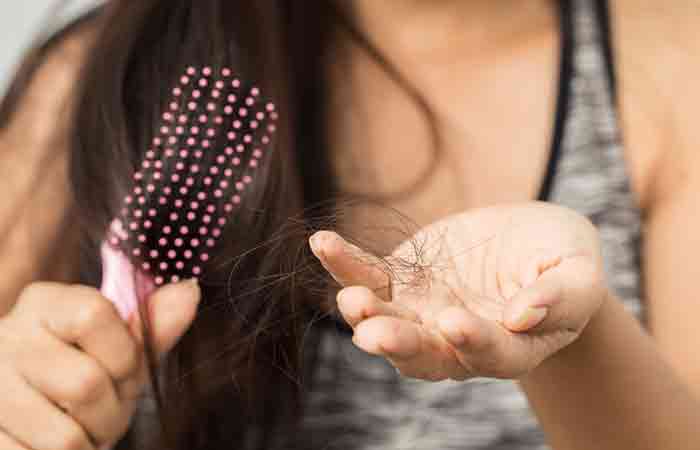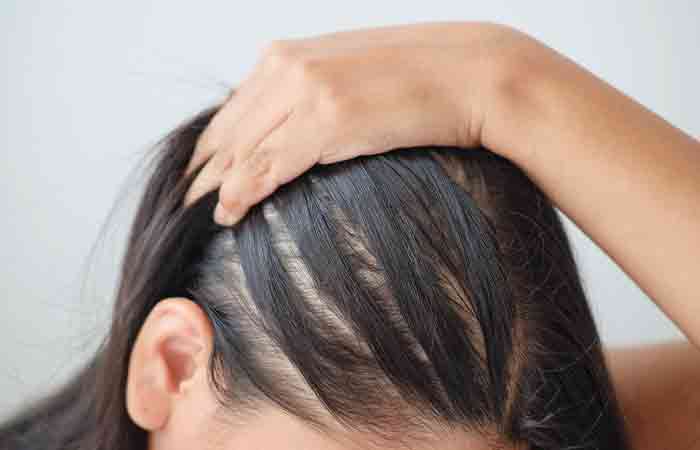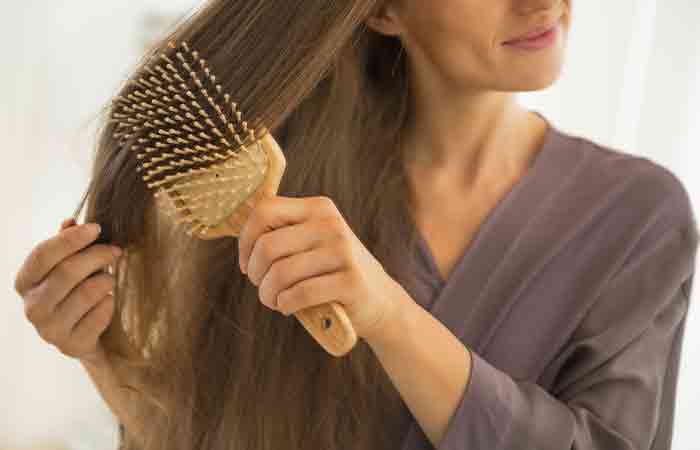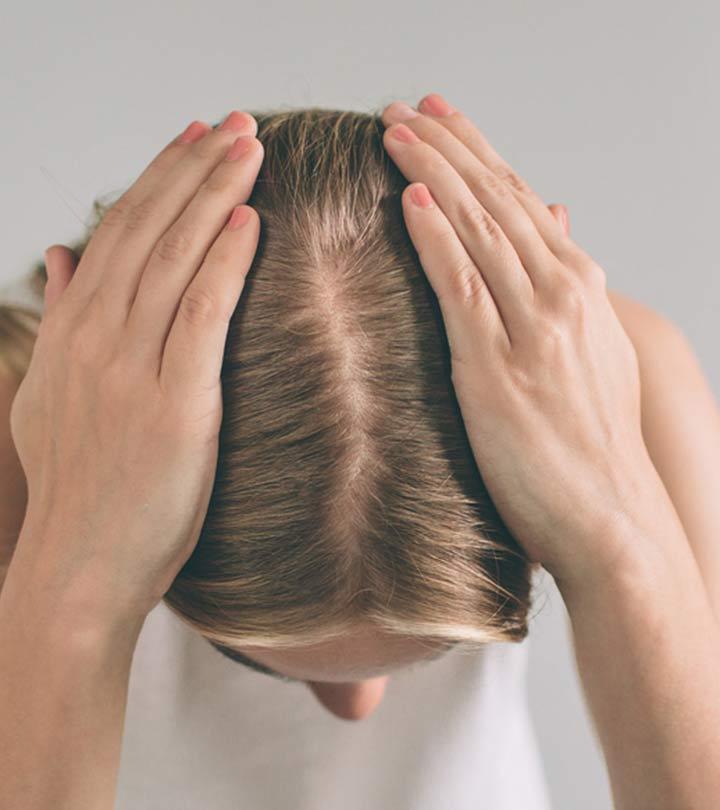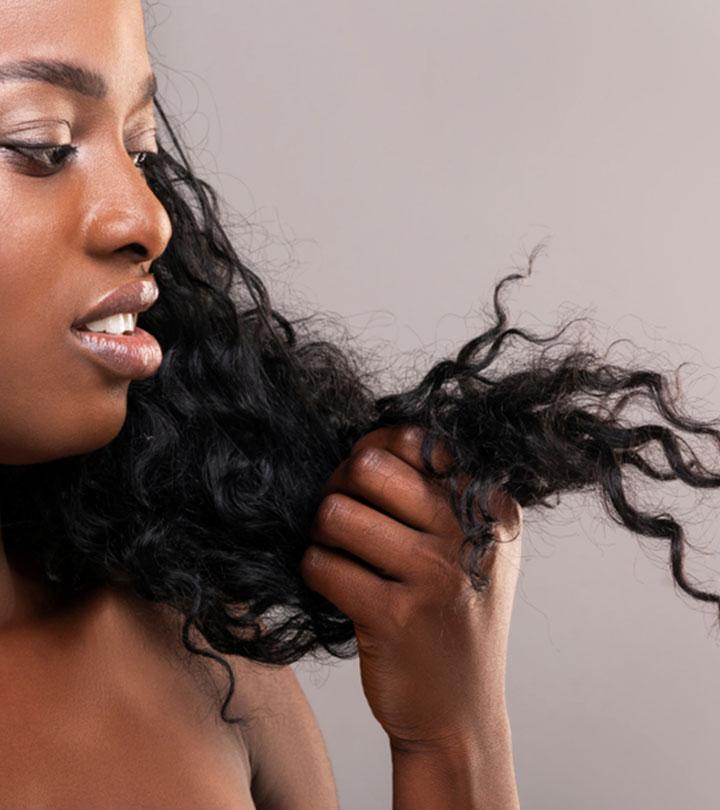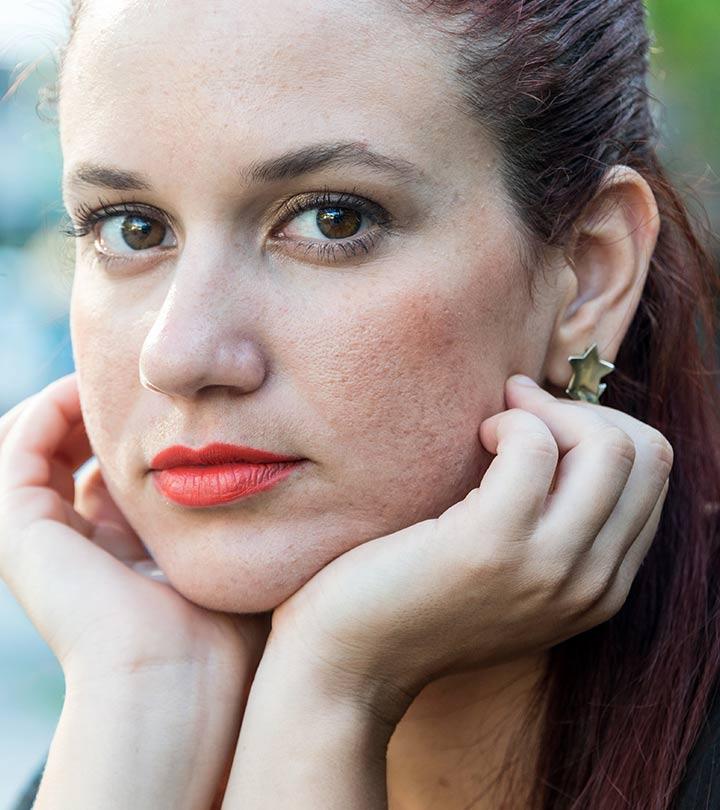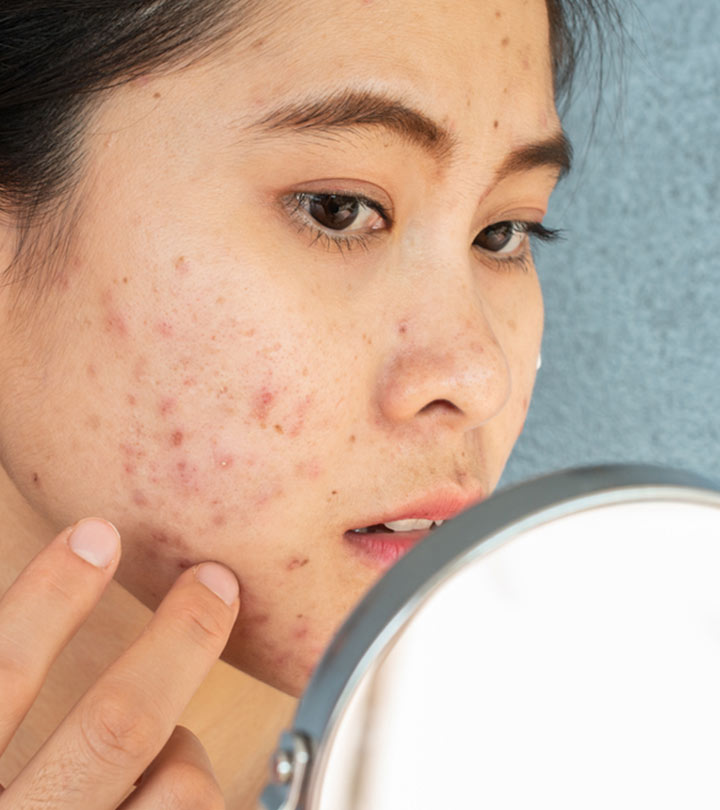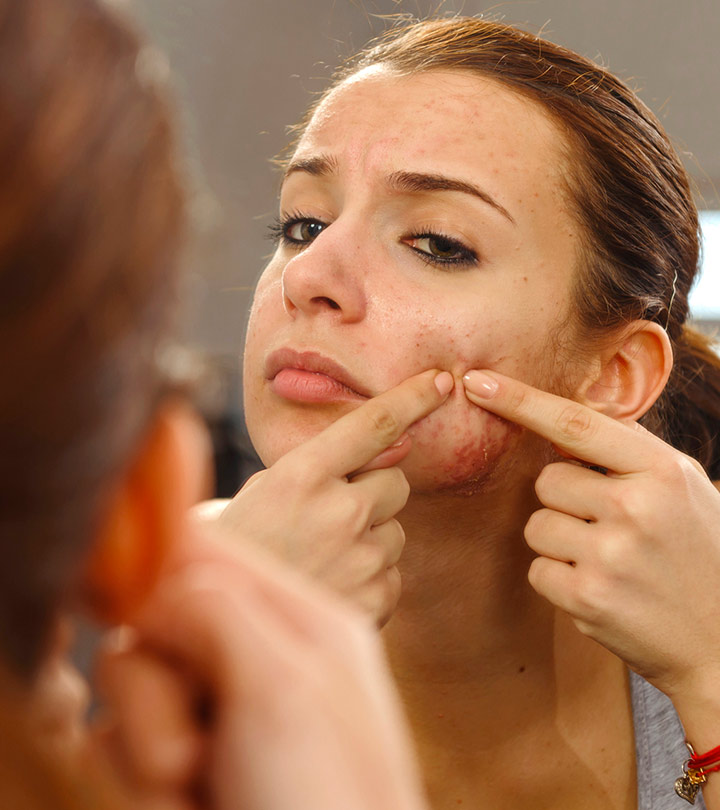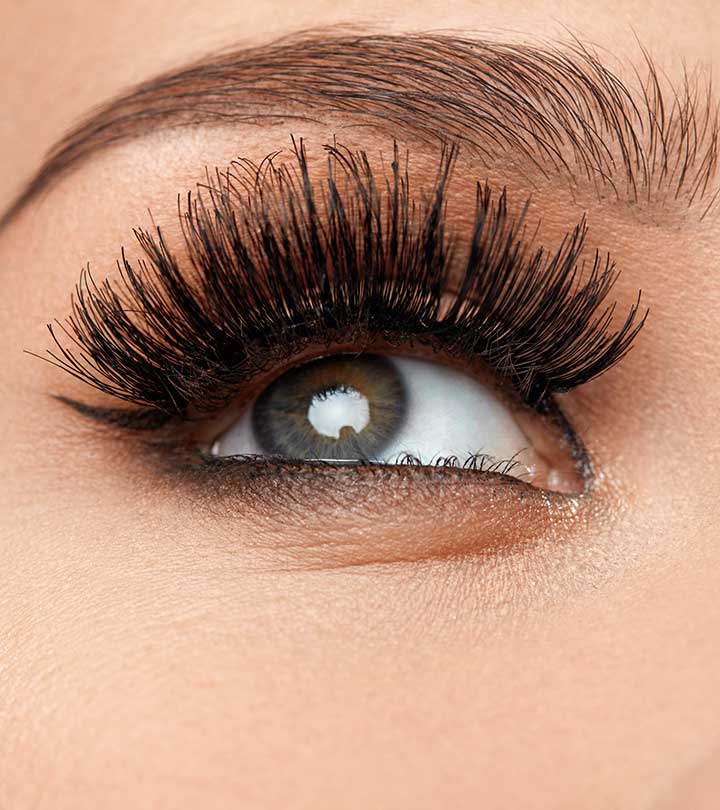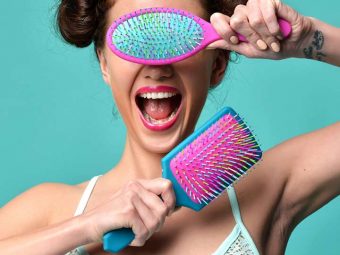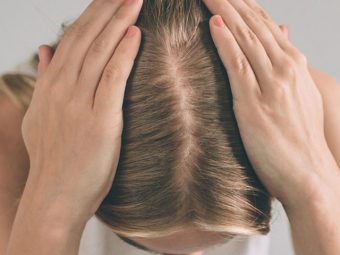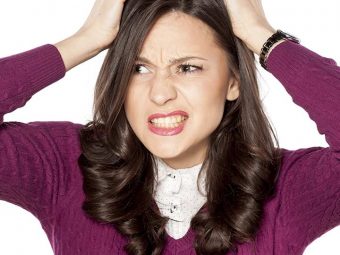Does Accutane Cause Hair Loss?
Reduce hair loss by eating a healthy diet, taking vitamin B supplements, and following a hair care routine.
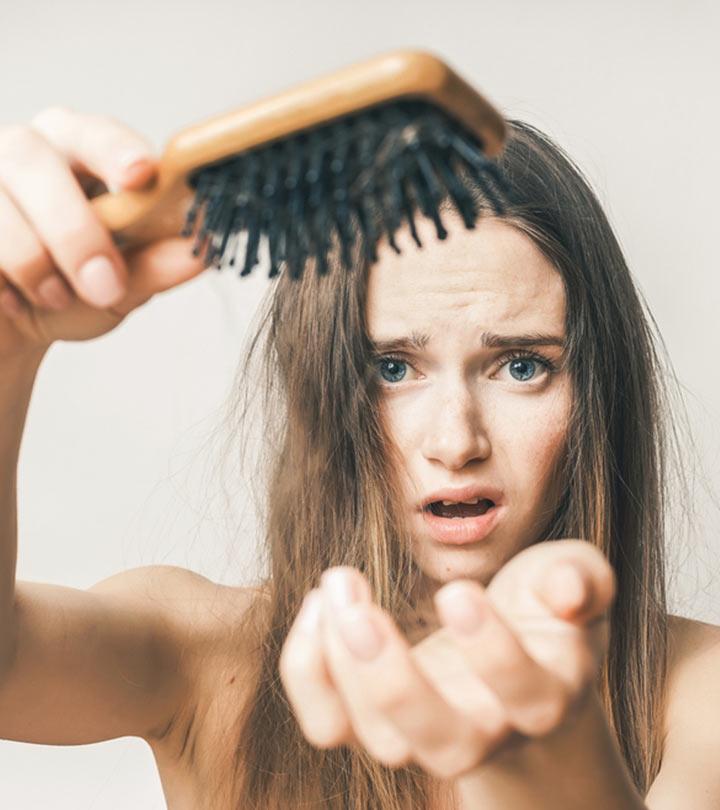
Image: Shutterstock
Accutane is a prescription medication for acne that is used as a last resort after all other treatment options are exhausted. In general, isotretinoin is a common drug used to treat acne, which is available under the brand name Accutane. But does accutane cause hair loss? How far is this true? This article explores the relation between Accutane and hair loss, the research behind it, and some tips to prevent hair loss while using this medication. Keep reading.
In This Article
What Is Accutane?
Isotretinoin, a vitamin A derivative, was sold under the brand name Accutane. It was an acne drug developed by Swiss drugmaker Roche Holding AG, which was discontinued in 2009.
Although oral isotretinoin or Accutane was approved by the Food And Drug Administration (FDA) in 1982, there were reports of potential side effects of the drug, linking it to depression and suicidal thoughts (1). The company discontinued manufacturing Accutane. However, it still distributes the generic versions of isotretinoin in the market.
Isotretinoin is used to treat severe acne that does not respond to other forms of treatment. Since it is a derivative of vitamin A, doctors advise avoiding taking vitamin A supplements while on isotretinoin.
Isotretinoin also has some serious side effects, including hair thinning and hair loss. Keep reading to find out how it is linked to hair loss.
 Quick Tip
Quick TipWhy Accutane May Cause Hair Loss
The exact mechanism of how isotretinoin causes hair loss is still unknown. However, a study found that it may cause alopecia areata (hair loss in patches) (2). More research is needed to arrive at a conclusion.
In most cases, such hair loss is temporary, and people recover once the drug is discontinued. However, in some instances, hair loss can be permanent. Let’s find out what scientific research says about this.
What The Research Says
Research indicates that the drug may suppress the hormones present in the pituitary glands (2). This hormone suppression may help clear acne. However, it may also affect the hair growth rate.
Another study suggested that isotretinoin taken in low dosage (0.5 mg/kg per day) may not affect the hair (3). However, using high doses of isotretinoin or retinoids may cause hair loss (4).
Usually, doctors tailor the dosage of the drug, depending on the severity of acne. Unregulated use of isotretinoin may trigger hair loss. Wondering if the hair loss is permanent or not? Find out in the next section.
Does Accutane Cause Permanent Hair Loss?
No. Accutane will not cause permanent hair loss if you follow the dosage prescribed. You may experience hair fall, but it will subside once you stop taking isotretinoin.
Doctors usually administer a low dosage, monitor the individual’s reaction to the drug, and then create a treatment plan. If you are experiencing hair loss while using isotretinoin, you may talk to your doctor for preventive measures or follow these tips.
Tips To Prevent Hair Loss While Using Accutane
- Follow A Healthy Diet: Follow a healthy diet plan that includes vegetables, fruits, dairy, and meat. This will help prevent vitamin and mineral deficiencies and hair loss.
- Take B Vitamins: Isotretinoin treatment may cause vitamin B deficiency, especially folic acid (vitamin B9) (5). This may trigger hair loss (6). Consult a doctor to find out the right dosage you may need.
- Avoid Vitamin A Supplements: An excess of vitamin A may cause hair loss and other complications. Hence, avoid taking vitamin A supplements while on isotretinoin treatment.
- Follow A Hair Care Routine: A proper hair care regimen with the right hair products keeps the hair strong and healthy. This may help prevent hair loss.
- Stay Stress-free: Stress is a major reason for hair loss (7). That is why it is crucial to avoid stressing out. You may try meditation, take up a hobby, exercise, socialize, travel to different places, or do whatever keeps you happy.
 Quick Tip
Quick TipThe Takeaway
Accutane hair loss is a side effect of Accutane, a drug used to treat acne. However, this hair loss is only temporary and stops when the usage of the drug is discontinued. Research also says that this drug can affect hair growth rate. However, you can manage this hair loss by following a few preventive tips like consuming a healthy diet, taking B vitamins, avoiding excessive intake of vitamin A supplements, following a hair care regime, and staying stress-free helps combat hair loss by Accutane.
Frequently Asked Questions
How common is hair loss on Accutane?
Hair loss caused by isotretinoin isn’t that common. To minimize the likelihood of hair loss while taking an Accutane prescription, we must, however, take all reasonable precautions. This should be done by following doctors’ instructions and managing other factors.
Can I take biotin while on Accutane?
There were no interactions observed between Accutane and biotin. However, discuss with your doctor before you take them together.
Can Accutane change your hair texture?
Yes, Accutane (isotretinoin) can result in hair loss or thinning by interfering with the normal hair cycle or harming hair follicles, especially in those who are sensitive to it or taking high doses.
Does Accutane make your hair frizzy?
Patients taking Accutane or isotretinoin may experience a decline in their hair’s texture, thickness, and quality. Your hair may be more frizzy and difficult to style, with more flyaways.
How long does hair loss last after Accutane?
Thankfully, hair loss following the use of isotretinoin (or other vitamin A derivatives) appears to be transient. Normally, hair regrowth starts as soon as you stop your treatment. Hair can occasionally take several months to return to its original state.
Are there any natural alternatives to Accutane?
Antioxidants: repairing oxidative damage and generating new skin cells. Omegas help your skin by replacing unhealthy fats with skin-loving ones, fighting bad oil with good oil. Omega 7 helps to reduce skin inflammation. Beta-carotene is a secure substitute for Vitamin A and its natural precursor.
Key Takeaways
- Accutane (isotretinoin) was an FDA-approved prescription medication for treating severe acne.
- The brand Accutane is discontinued. However, the manufacturer distributes isotretinoin (a vitamin A derivative) under other generic names.
- A high dose of isotretinoin has been linked to temporary hair loss issues and alopecia.
- Taking the medication in low doses does not affect your hair. Therefore, following the doctor’s prescribed dosage is crucial.
Stop hair loss caused by accutane with expert tips and remedies. Regain your confidence and nourish your hair back to health. Watch the video and take action against hair loss today.
Sources
- The use of isotretinoin in acne
https://www.ncbi.nlm.nih.gov/pmc/articles/PMC2835909/ - Alopecia areata and isotretinoin; coincidence or causal relation
https://onlinelibrary.wiley.com/doi/abs/10.1111/dth.13280 - Isotretinoin influences pituitary hormone levels in acne patients
https://pubmed.ncbi.nlm.nih.gov/21103844/ - Evaluation of biophysical skin parameters and assessment of hair growth in patients with acne treated with isotretinoin
https://www.ncbi.nlm.nih.gov/pmc/articles/PMC3907898/ - The effects of isotretinoin therapy on serum homocysteine, folate and vitamin B12 levels in patients with acne: a meta‐analysis and meta‐regression
https://onlinelibrary.wiley.com/doi/full/10.1111/jdv.15886 - The Role of Vitamins and Minerals in Hair Loss: A Review
https://www.ncbi.nlm.nih.gov/pmc/articles/PMC6380979/ - Hair and stress: A pilot study of hair and cytokine balance alteration in healthy young women under major exam stress
https://www.ncbi.nlm.nih.gov/pmc/articles/PMC5397031/



